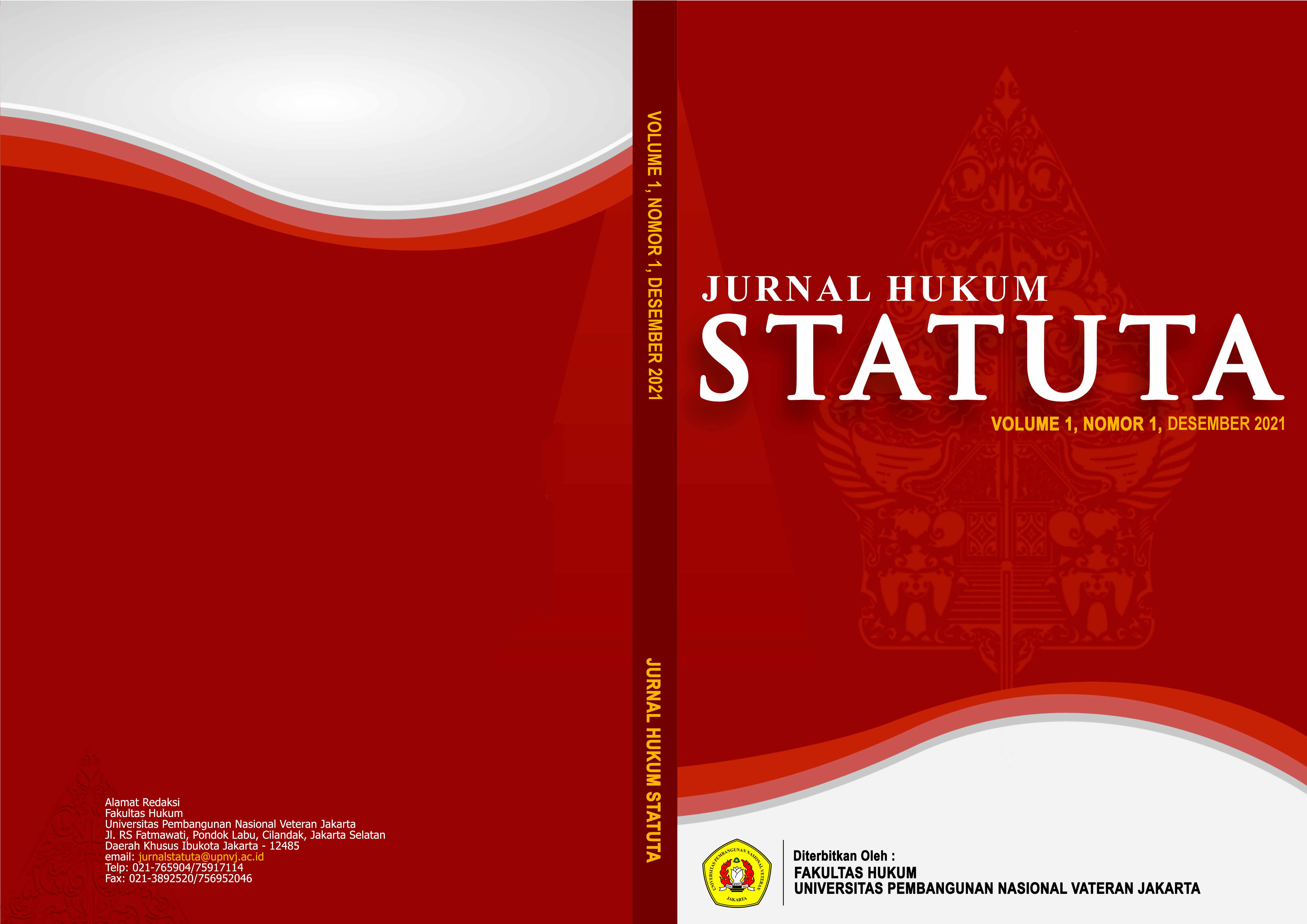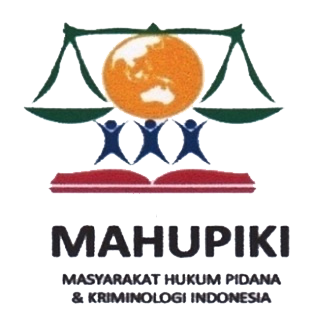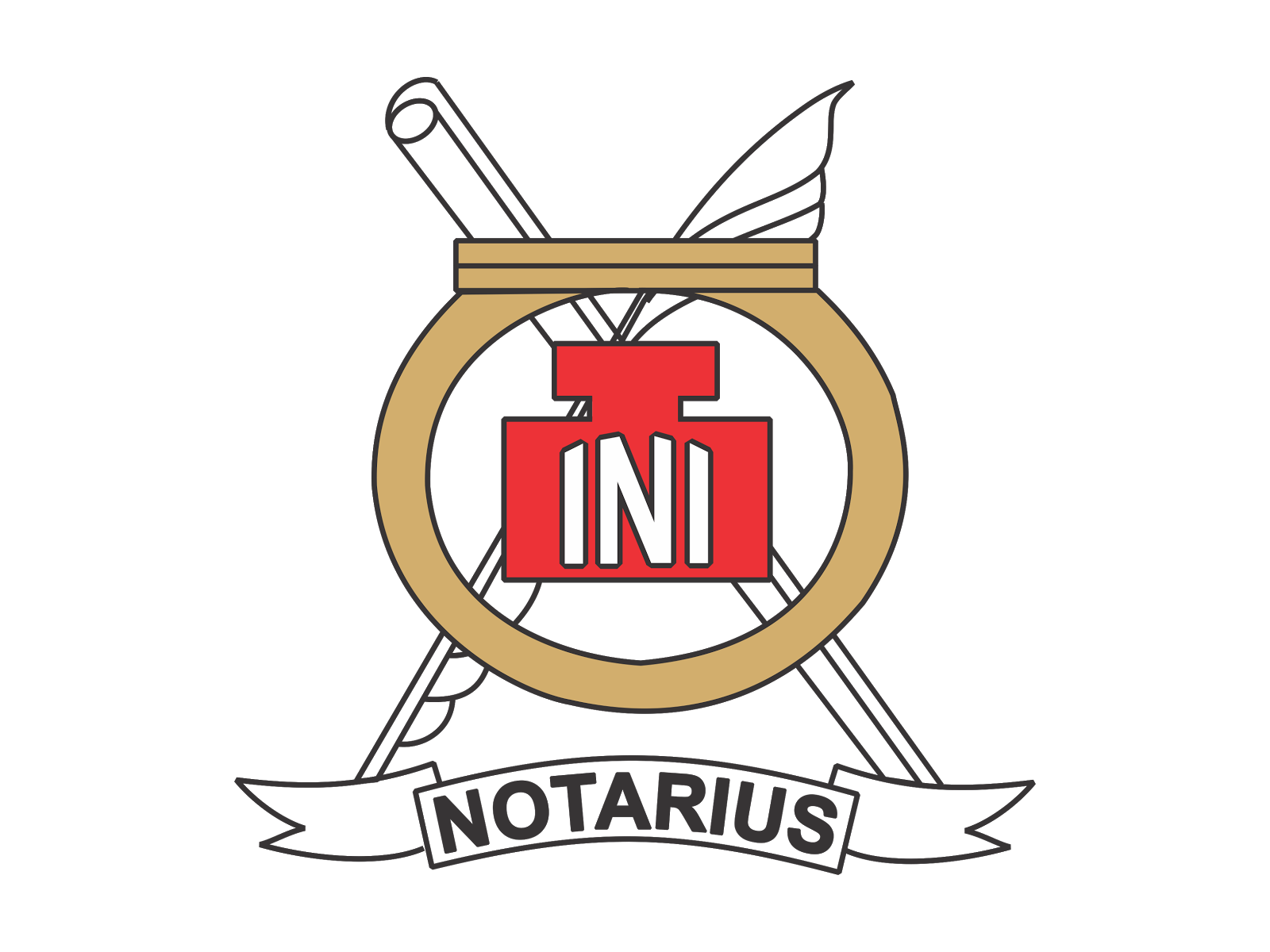Kepastian Hukum Bagi Narapidana Pedofil Yang Diancam Pidana Tambahan Kebiri Kimia
DOI:
https://doi.org/10.35586/jhs.v1i1.5700Abstract
This study aims to find out the ratio legis of chemical castration penalty for convicted paedophiles in the child protection act. this type of research is normative legal research. The research used a statutory approach and a concept approach. the data used in this study is secondary data sources. The data collection technique conducted for this research was literature studies. The research showed that the number of pedophilia cases are increasing and growing in Indonesia, thus requiring a new innovation in implementing penalty towards perpetrators who deviate from the provisions of criminal sanctions in the criminal code.This is because the existing sanctions have not been effective in providing a deterrent effect towards the perpetrators. The ratio legis for additional penalty of chemical castration is based on the threats to children welfare (children's rights from various aspects) due to the increasing number of victims of sexual violence against children (male and female) committed by pedophiles.
Downloads
Published
How to Cite
Issue
Section
License

This work is licensed under a Creative Commons Attribution-ShareAlike 4.0 International License.
Authors who publish with this journal agree to the following terms:
- Authors retain copyright and grant the journal right of first publication with the work simultaneously licensed under a Creative Commons Attribution-ShareAlike 4.0 International License that allows others to share the work with an acknowledgement of the work's authorship and initial publication in this journal.
- Authors are able to enter into separate, additional contractual arrangements for the non-exclusive distribution of the journal's published version of the work (e.g., post it to an institutional repository or publish it in a book), with an acknowledgement of its initial publication in this journal.
- Authors are permitted and encouraged to post their work online (e.g., in institutional repositories or on their website) prior to and during the submission process, as it can lead to productive exchanges, as well as earlier and greater citation of published work (See The Effect of Open Access).
Jurnal Statuta have CC-BY-SA or an equivalent license as the optimal license for the publication, distribution, use, and reuse of scholarly work.
In developing strategy and setting priorities, Jurnal Statuta recognize that free access is better than priced access, libre access is better than free access, and libre under CC-BY-SA or the equivalent is better than libre under more restrictive open licenses. We should achieve what we can when we can. We should not delay achieving free in order to achieve libre, and we should not stop with free when we can achieve libre.
You are free to:
- Share — copy and redistribute the material in any medium or format
- Adapt — remix, transform, and build upon the material for any purpose, even commercially.
The licensor cannot revoke these freedoms as long as you follow the license terms.

Jurnal Statuta licensed under a Creative Commons Attribution-ShareAlike 4.0 International License.











